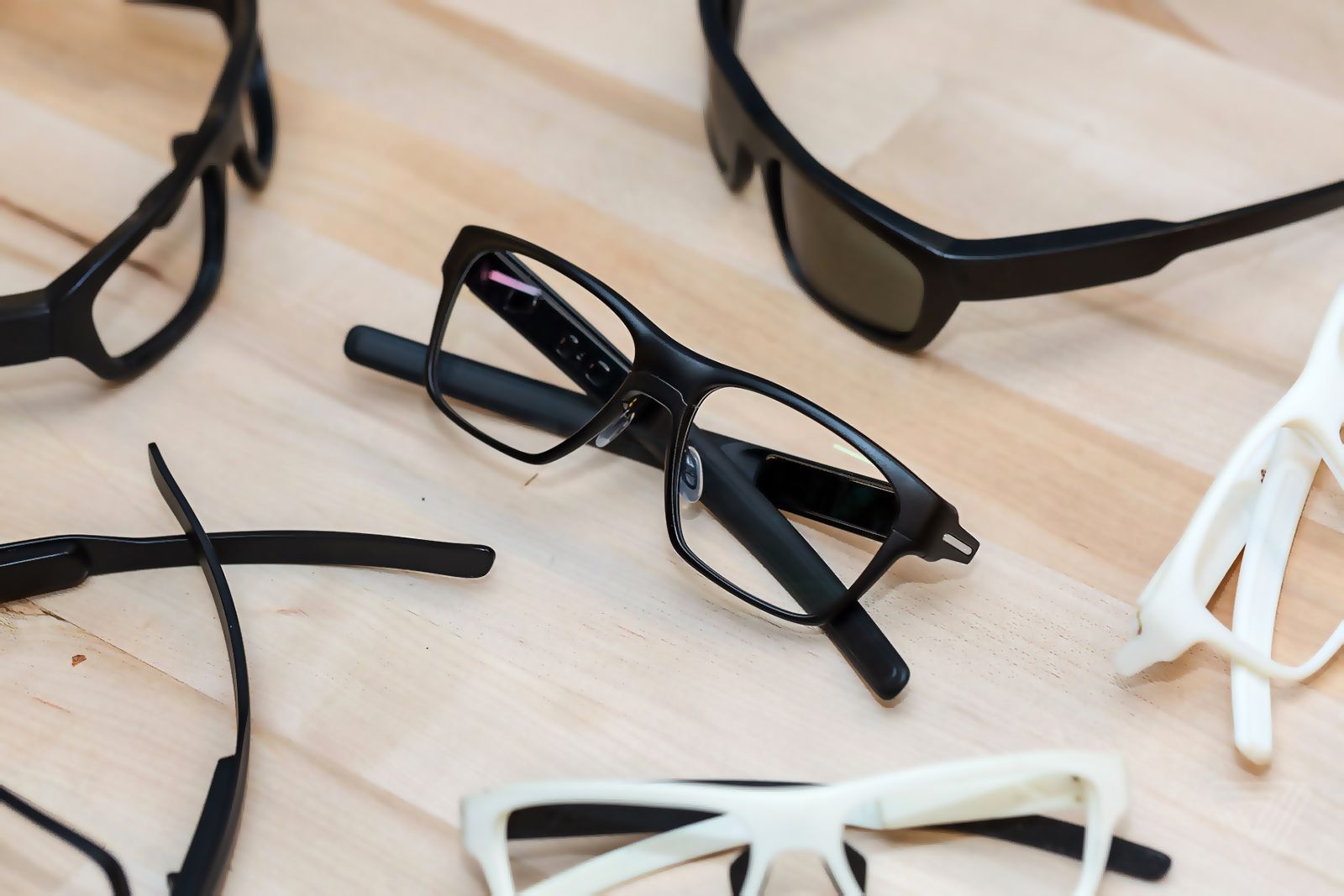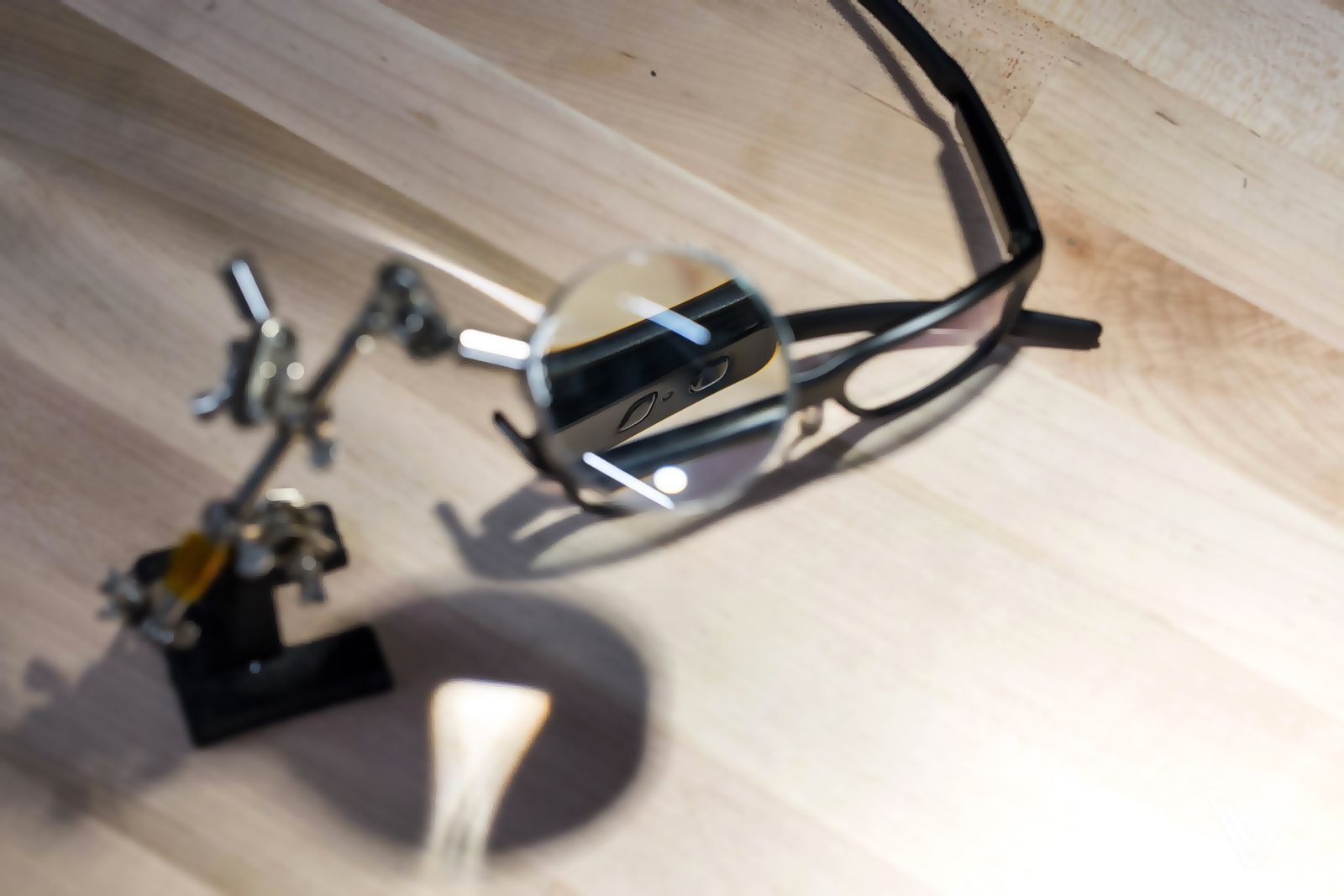It turns out Intel really is serious about smart glasses.
A week after Bloomberg claimed Intel wants to sell its majority stake in an augmented reality firm, with the ultimate hope of launching a pair of consumer smart glasses, The Verge has posted photos of these said smart glasses. They're called Vaunt, and they have plastic frames, weigh under 50g, and look like regular eyeglasses. Their smart innards are built into the stems and control a class-one laser.
This laser shines a red, monochrome 400 x 150-pixel image into the back of your retina. There is no camera, which privacy critics often derided Google Glass for, and there is no purpose to these things other than to serve up notifications. You're free to walk about and do activities, rather than check your phone. Vaunt can do things like show your mom's birthday while you talk on the phone with her.
- Snap Spectacles tips and tricks: Get creative with your specs
- Google Glass is dead, long live Project Aura instead
The glasses are in the prototype phase, but the current models do have motion sensors, which help with offering ambient, contextual information relative to your location. And although they don't have a microphone yet, Intel indicated future models may have one in order to work with assistants like Alexa. In that case, Intel hypothesised you could be in the kitchen, and Alexa might show you recipes.
Other features include Bluetooth (for linking to your smartphone), a processor (for running apps), and a compass and accelerometer (so Vaunt can determine where you are and the direction you're looking). Now, although Intel suggested Vaunt could work with Alexa, it also said it wants to avoid Vaunt becoming a distraction, so instead of using voice commands, you could use heads nods to control it.
Intel wasn't very clear about how Vaunt will ultimately work, let alone how you'd actually interact with it. Intel also didn't confirm rumours that it might sell part or all of Vaunt, though it suggested it would prefer to rely on OEMs to make the final hardware and that it wants Vaunt to be a wide open platform with an SDK for developers. So, think of this as a reference design more than anything else.
Obviously, there a million different ways that Intel could take this project. The idea of hands-free notifications does pique our interest, but at the same time, we only have Google Glass and Snap Spectacles to compare Vaunt to, and both of those miserably failed.


